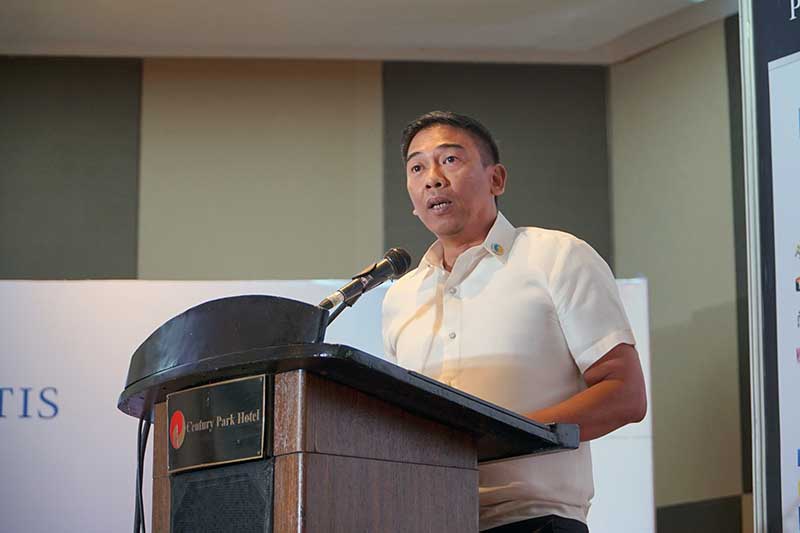
By Joseph Bernard A. Marzan
The head of the Commission on Human Rights (CHR) on Friday, April 26, urged community press members to embrace a human rights-based approach to journalism. This initiative aims to shed light on local human rights stories and bring them to a broader audience.
Speaking at the Philippine Press Institute’s (PPI) learning forum on the Media-Citizen Council, CHR Chairperson Richard Palpal-latoc emphasized the importance of incorporating human rights into regular reporting.
Accurate reporting, Palpal-latoc asserted, must be evidence-based and respect the rights and needs of the public.
“Human rights reporting is using journalism to empower individuals and communities to understand and claim their rights, and compel individuals and institutions to carry out their responsibility in respecting, protecting, and fulfilling human rights.”
He further noted that human rights journalism is not just about reporting; it’s about empowering victims of human rights violations or abuses, giving voice to marginalized communities, and challenging systemic injustices.
“At its very best, human rights journalism invites retrospection on the experiences and needs of victims of human rights violations or abuses, amplifies the voices of marginalized communities, and confronts systemic injustices,” he added.
Palpal-latoc highlighted the vital role community press plays in amplifying diverse voices and addressing issues often neglected by mainstream media.
“By empowering community journalists and establishing institutions in underserved areas, we can keep human rights issues at the forefront of public consciousness. This grassroots approach to human rights reporting strengthens democracy while also promoting greater accountability and transparency at all levels of society.”
The CHR, in partnership with the Philippine Center for Investigative Journalism (PCIJ), is organizing a training series on human rights reporting for community journalists. They have also held sessions with media workers and a national media forum in 2023 to address challenges faced by journalists.
In these sessions, the CHR identified concrete actions, such as probing alleged human rights violations against the press, collaborating with lawmakers on free speech policies, and engaging in broader dialogues with stakeholders.
Media-related issues have been integrated into the commission’s Lakbay Karapatan (Rights Journey) activities, which include consultations with media workers to identify potential assistance areas.
However, Palpal-latoc acknowledged challenges, including the “vilification” of the CHR and the concept of human rights in the Philippines.
“In my visits, I introduced the concept of human rights in journalism. There are mixed reactions because we talked to people who accept human rights reporting or the idea of the [CHR] looking into and participating in Media-Citizens Councils and [in] journalism, and there are some who are not. But we understand because of the experiences we had,” he said.
The CHR has also launched the Alisto! Alert Mechanism this year, allowing the press to report incidents involving media workers directly, reinforcing its commitment to the Philippine Plan of Action on the Safety of Journalists.
Palpal-latoc commented on the Media-Citizen Councils formed in major cities recently, viewing them as CHR’s ‘partners’ for freedom, accountability, and dignity.
“These councils act as platforms for media self-regulation, aiming to address complaints and ensure fair, accurate, accountable coverage while protecting vulnerable sectors,” he explained.
He concluded by emphasizing the councils’ role in providing a discussion forum and facilitating swift issue resolution, circumventing protracted legal or public disputes.




















